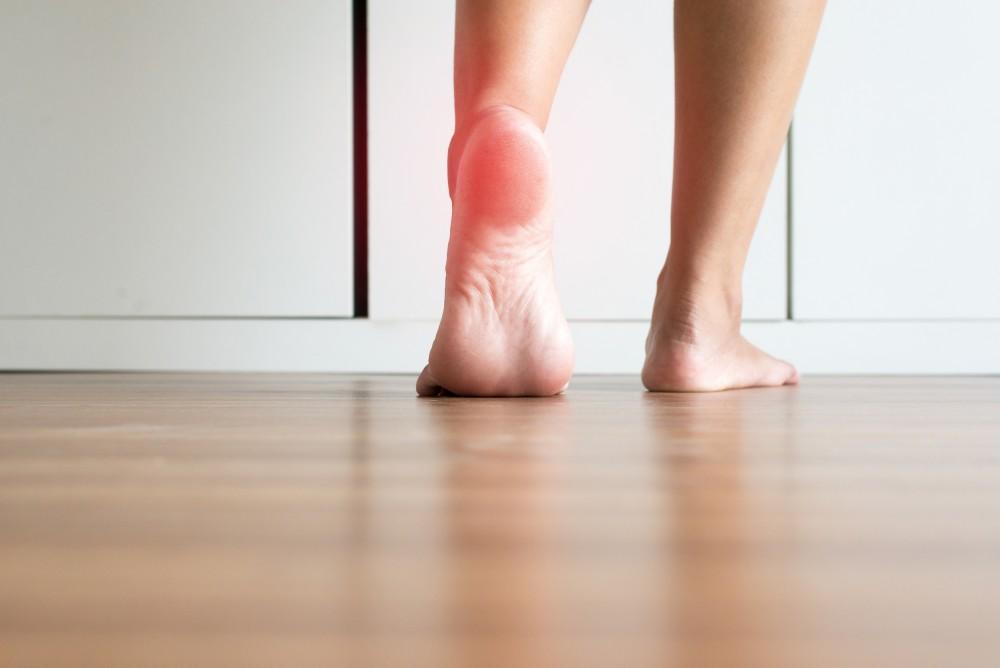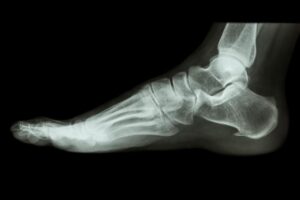What Is the Best Treatment for My Plantar Fasciitis?

If you’ve been diagnosed with plantar fasciitis, you’re likely experiencing pain that impacts your mobility. With the right treatment, you can reduce inflammation in your arches and regain your pain-free, active lifestyle.
At Arizona Foot Health in Phoenix, Arizona, podiatrists Ryan Golub, DPM, and Zachary Flynn, DPM, AACFAS, develop a personalized treatment routine to help you effectively manage your plantar fasciitis symptoms. Learn about the most effective treatments available for plantar fasciitis.
How does plantar fasciitis treatment help?
The most effective plantar fasciitis treatments target the inflammation and pain in the bottom of the foot and heel. These symptoms are usually worse when one first wakes up when the inflamed fascia band is tight from lack of activity.
An effective treatment protocol reduces or eliminates pain when you walk, making it easier to go about your day. Our team’s treatment recommendations are based on your pain levels, lifestyle, and the severity of damage to your fascia band.
The best treatments for plantar fasciitis
If you’re diagnosed with plantar fasciitis, you can expect to use some or all of these treatments during rehabilitation.
Lifestyle changes
Sometimes, making changes to your lifestyle can reduce pressure on your fascia band and give it time to heal. If you live an active lifestyle, our team often has you temporarily reduce your physical activity and let your feet rest.
As you experience less pain, we help you slowly add activity back to your life in a safe way that won’t cause a flare-up. Carrying excess weight can also make plantar fasciitis worse, so if you’re overweight or obese, we can help you with a weight loss plan that doesn’t aggravate your foot.
Medication
Ibuprofen and other nonsteroidal anti-inflammatory drugs (NSAIDs) are available over the counter and reduce inflammation and pain. You can combine NSAIDs with icing your foot and take other safe medication that lowers pain levels.
Physical therapy
Physical therapy involves a strengthening and stretching routine that helps relax the fascia and strengthen the surrounding muscles. Sessions can also incorporate massage techniques that bring relief.
Changes to your footwear
Shoes that don’t support your arch can cause or worsen plantar fasciitis. Our team recommends wearing supportive shoes at all times that are appropriate for your chosen activity.
Avoid wearing flip-flops and high-heeled shoes whenever possible. We can also fit you with custom orthotics to place in your shoes, and night splints that gently stretch your feet while you sleep.
Amniotic growth factor injections
Amniotic growth factor injections are a regenerative medicine technique that works well when your plantar fascia is damaged. Our team injects amniotic tissue into your fascia band, which helps your body remove damaged tissues and regenerate new, healthy cells.
This treatment is safe, noninvasive, and causes complete healing in combination with other treatments.
Pulse wave therapy
Another regenerative medicine technique that works well on plantar fasciitis is Pulse Wave Therapy. This technique uses ballistic sound waves to break up damaged tissues over a series of sessions over six weeks, allowing the body to regenerate new ones.
This treatment is gentle, quick, and less expensive than traditional treatment like physical therapy. Up to 80% of patients experience significant relief.
Plantar fasciitis treatments are effective, safe, and can eliminate your pain for good. If plantar fasciitis pain is getting in the way of your life, contact us for help.
You Might Also Enjoy...
The Achilles Heel
Given Arizona’s climate, patients are able to remain active year round. It’s why we all chose to live here. But…
Alleviating Back Pain and Other Benefits of Custom Orthotics You Didn’t Know About
Would you ever imagine that custom foot orthotics could improve your quality of life? That’s what many people say after…
9 Helpful Tips to Prepare Your Home Before Bunion Surgery
When moderate interventions, such as wearing wider shoes or using pads in your shoes, fail to ease your bunion pain…
When Should You Go to the Doctor for an Ingrown Toenail?
In most cases, you can nurse an ingrown toenail at home with over-the-counter pain medication, topical antibiotic creams, and soaking…
6 Home Exercises to Keep Your Ankles Strong
Ankles that feel wobbly and weak are vulnerable to injury. If you play sports, run, jump, or just walk often,…
Is Surgery My Best Option For Treating Bunions?
You have a bunion and it isn’t pretty, but if your bunion is small enough, or doesn’t hurt, you may…






